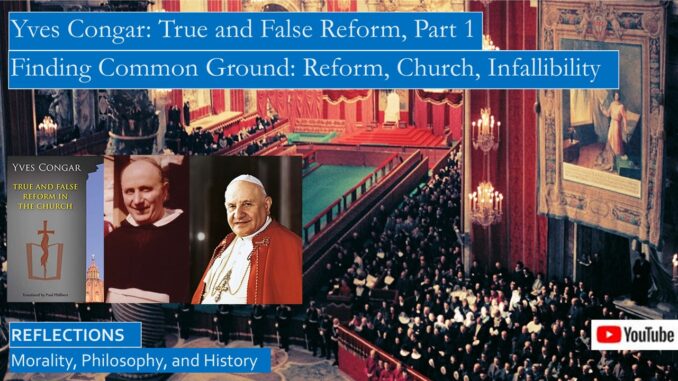
When Archbishop Angelo Roncalli, the future Pope John XXIII, reflected on this book, he asked, “A reform of the church? Is such a thing really possible?” Yves Congar reflects, What is the role of the church? Is the church the hierarchy in the Curia; or is the church the parishioners in the pews? What are the sacraments? What is the church’s definition of commonly misunderstood concepts, such as infallibility?
This book, along with help by the Holy Spirit, encouraged the pope to call for a church council, and helped set the tone for Vatican II. As Yves Congar teaches us, spiritual reform cannot be a revolution, false reform divides rather than unites.
Historically, this urge for reform in the Catholic Church grew out of the experience of believers surviving the hostile fascist regimes of World War II, so we will begin with the wartime experiences of Yves Congar and a fellow French priest also influential in Vatican II, Henri de Lubac.
Script for this video, with more Amazon book links: https://www.slideshare.net/BruceStrom1/yves-congar-true-and-false-reform-part-1-finding-common-ground
YouTube video for this blog: https://youtu.be/YwgrKvIjoc0
SHORT BIOGRAPHIES OF YVES CONGAR AND HENRI DE LUBAC
When Pope John XXIII called the Second Vatican Council, he asked the Curia to form a Preparatory Commission to draft the initial decrees for the council. This commission was dominated by conservative cardinals who oversaw the repression of progressive ideas under Pope Pius XI and Pope Pius XII, the wartime popes. The pope also selected Yves Congar and another fellow French theologian, Henri de Lubac, to serve as consultants to the commission, though they were unaware of this papal intervention at the time. Their abilities were underutilized by the Commission, but after the Council was convened, they would both be influential in amending and rewriting the council decrees.
Yves Congar was born in France in 1904. During World War I the Germans occupied his town and deported his father to Lithuania for the war. After the war, he entered the seminary, joined the Dominican order and became a professor in ecclesiology, studied the history of theology, and was active in the ecumenical movement, all themes addressed in the Vatican II decrees. When he was drafted in World War II he served briefly in the medical corps, and like most French soldiers, spent the long war years in a German POW camp. Other than his attempted escape attempts, we know little about his wartime experiences, no doubt his experiences with Protestants in the camp deepened his ecumenical convictions.
After France was liberated, Congar returned to teaching, supporting the ecumenical movement, and the worker-priest movement, where priests were encouraged to share the humble life of the workers they were ministering. These activities, and particularly his publication of True and False Reform in 1950, raised suspicion in the Curia in Rome. Pope Pius XII saw academics as working for the church, to him professors should teach and justify the Vatican’s theology, he was uncomfortable with academic priests who insisted on the academic freedom to inquire and question.[1]
Yves Congar remembered that “from the beginning of 1947 until the end of 1956,” there was “an uninterrupted stream of denunciations, warnings, restrictive or discriminatory measures and distrustful interventions.” During this time, he was exiled from France, was forbidden to teach, and his publications were pulled from circulation.[2]
The experience of his fellow Frenchman, Henri de Lubac, was similar. Soon after joining the Jesuit order, he was drafted into the French Army in World War I, after the war he became a professor, specializing in the study of the early Church Fathers. His teaching was interrupted when, after the Nazis invaded France in World War II, he was forced underground due to his activities with the French Resistance opposing the occupying Nazi forces. He published an underground journal demonstrating the incompatibility of Christian belief with the ideology of Nazism.
Like Congar, Lubac was also a prolific writer of progressive theology. Like Congar, he was also exiled, forbidden to teach, and his publications withdrawn in 1950. Both Congar and Lubac were rehabilitated shortly before the calling of the Council. They would both make major contributions to many of the final decrees of the council. As a final act of rehabilitation, both Congar and Lubac were appointed cardinals by Pope John Paul II as gratitude for their services during and after Vatican II.[3]
NATURE OF REFORMS OF VATICAN II
The reforms of Vatican II were political, not theological, in nature. What we mean by political, is these reforms changed how the Catholic Church engages with the modern world, a new world where democracy is not the enemy of the church, where in the long run, democracy is the political system under which the church can thrive, and the faithful are encouraged to participate in democracy. The urgency for the Vatican II reforms was a reaction to the feeling that many in the church felt that the Catholic Church found itself on the wrong side of history after the end of World War II.
Our channel prefers to quote extensively from the author so you can have a better feel for what the original author taught, as opposed to our opinion. This is especially true for Yves Congar, he is so precise in his wording, and puts such great thought into what he writes, that you will be greatly rewarded if you patiently parse his reflections. We would like to add that though the first version was written long before Vatican II, the latest version includes direct references to Vatican II.
Regarding the question: How Can There Be True Reform?
Before we can answer this question, we must first clarify what we mean by reform, and what exactly needs to be reformed.
Part One. Why and How Does the Church Reform Itself?
- Section 1. The Church’s Holiness and Our Failures: We must first understand the differences between the ancient church and the modern church, and what the Catholic Church actually believes then and now, and how we, as individual Christians, must Love God and love our neighbor.This section is also about definitions, because unless we agree on the definitions, we cannot have intelligent discussions about these topics.
- Section 2. Why and In What Way Do the People of God Need To Be Reformed? Reformation should always begin in our hearts; as faith, hope, and love must begin in our hearts.
- Section 3. Prophets and Reformers. Who are true reformers? Who are false prophets?
Part Two. Conditions for Authentic Reform Without Schism
Part Three: The Reformation and Protestantism: Withdrawn in Final Edition. How can you even define Protestantism?
Conclusion: Perspectives on the Attitude to Take Toward Concrete Reform Initiatives
Part One. Section 1. The Church’s Holiness and Our Failures
In this section, Yves Congar is basically building a consensus of understanding between him and the reader. We always assume that our understanding of terms is universal, whereas every one of us defines words describing moral and abstract religious concepts differently based on our upbringing, our study, and our reflections, filtered through our own unique personality.
Yves Congar begins with the beginning: how the early church Fathers in the first few centuries viewed the church, how the ancient perspective differs from the modern perspective, and how to address the problem of evil in the church.
- Yves Congar teaches us, “The patristic tradition had a very mystical idea of the church is different from today.” Just as heaven descends to the church on earth, so we of the church are enabled by Christ to ascend to the Kingdom of Heaven. The church is a “mystery of holiness, brought to life by the pneuma or Spirit of God. The church,” according to ancient tradition, is “a visible body constituted by sacraments celebrated by the hierarchical priesthood.”This means that sin, even personal sin, “separates us from God and also from the church. Therefore, reconciliation had to be public.” In the early church, you confessed your sins publicly, but as the church matured this proved problematic, and private confession to a priest became the tradition. “The problem of evil in the (early) church was seen first of all as the problem of sin.”
- The ancient patristic church favored the objective over the subjective, truth is absolute; whereas the for the modern secular world, truth is relative, and it favors the subjective over the objective. Yves Congar quotes a church Father, “It matters little by whom or how something has been said; what counts, is to know if it is true or false.”
- Yves Congar teaches us, “In ancient times the church impressed the faithful as the most excellent of realities.” Here Yves Congar is precise, so I cannot simplify this: “Under the regime of Christendom, which was a symbiosis of faith and the temporal order under the guidance of the church, all real social good and human progress harmonized perfectly with the church, existing only in and through the church. For this reason, the question of evil in the church was seen then only from the viewpoint and within the context of the church, so seen exclusively in terms of sin.”Separation between church and state would have been seen as absurd in the ancient world, it was not even considered. The secular government either supported the church, or it was its persecutor, though it could also ignore the church when it was small.
Also, the Christian community was all-encompassing, surrounding the believers, you were truly part of a family of faith. Church was really part of your life; the church was imperfect only to the degree that sinfulness crept into the pews.
Yves Congar teaches that this leads to another difference, “in antiquity, the world was stable, and the ideal was to continue a tradition.” “By contrast, the modern world is marked by perpetual change, an evolution of events that the world interprets as progress.” Congar may not state this explicitly, but we know that the early Christians had far greater respect for the church and tradition, and the hierarchy of the church, which includes, primarily our pastor or priest. How quick we are to ignore moral advice that hits to close to home, how quick we are to attack these holy messengers!
Yves Congar also observes, “our contemporaries are more easily scandalized by personal failings. A bad priest now discredits the church much more than in ancient times.” Today, people often drop out of the church because of some fault of one priest.” This may be due to the lack of respect we have for the church; we look for an excuse to leave the church.[4]
EXHORTATIONS FROM HOLY SCRIPTURE
St Augustine describes the church as the Ecclesia mixta, the church with mixed element, “the church in its earthly phase is a community of sinners and not just of saints. Sin can indeed separate a person from Christ, and also in some way from the church. But sin does not take away one’s membership in the church.”
What do the apostolic letters in the New Testament teach us about sin in the community of the church?
- Yves Congar teaches us, with biblical references, that there are “numerous allusions to personal sins along with exhortations to lead a pure life,” sometimes you must exclude the unrepentant from your community, though IMHO this practice, known as shunning, has been misused so often that it should be used with extreme caution, if at all.
- There is a danger that “serious abuses can lead to the formation of cliques, jealousies, and disputes.”
- “The gravest of sins is false teaching or false practices.” I will add that Vatican II has added a qualifier to this teaching, that we should respect the religious traditions of our neighbor, as the modern world has a greater degree of religious diversity, both within and without the Christian faith community. Many more of us personally know Muslims, Hindus or Buddhists than was true in prior centuries.
KEY TEACHINGS OF THE EARLY CHURCH FATHERS
Yves Congar here condenses key teachings of the early church Fathers; his footnotes note his sources and are a good study guide.
Yves Congar teaches us that “St Augustine is attached to the idea that the church, like the individual soul, is ugly and sinful in itself. When it confesses its sins, it begins to become beautiful through the action of Christ who is himself true Beauty. The church finds the source of its beauty in feeling and confessing its need to be purified.” In other words, the striving for purification is what truly purifies, motives matter.
St Augustine continues, as quoted by Congar, “Each of the faithful and the church itself can say, ‘I am holy,’ because they receive their holiness from their Head, of whose body they are members. All their beauty and all their holiness come to them through the grace of this Head.”
Yves Congar quoting Shepherd of Hermas, “The Spirit who lives within the faithful is saddened by their sins, sins which can even bring about the losing the Spirit’s presence. But the Spirit remains forever in the church, which remains forever because of this.”
Yves Congar quoting St Ambrose, Although the church includes “sinners, it remains itself holy and immaculate; the sin does not affect the church in itself, but only in us. However, because its members are sinners, the church weeps tears of penitence. The church does not claim to be without weaknesses, but it confesses its wounds and desires to be healed; the church says of itself, as did the woman of the Gospel, ‘If I can only touch his garment, I shall be healed.’” And St Ambrose’s catechumen, St Augustine, echoes his sentiment that “the church, like Peter, is both strong and weak, following the Lord during his passion but then denying him.”[5]
THE TEACHING OF THE MAGISTERIUM AND THEOLOGIANS
Yves Congar teaches us that the Council of Trent was intended to be a reforming council, but that intent was muted when the Vatican was forced to close the archives of the council, forcing theologians to only rely on the condensed published decrees. Forced is a good word, the Protestant polemicists would have combed over this history and would have hammered the Catholic Church with half-truths and distortions in the heated political climate of the time.
We have reflected on the history of the Council of Trent using John O’Malley’s excellent studies as a primary source, Yves Congar quotes Cardinal Pole addressing the Council of Trent, reminding them of the verse in the Sermon on the Mount, that when “salt loses its savor, it is good for nothing than to be trodden underfoot.” Cardinal Pole reminds them that if the church does not realize that if its message is like this stale salt, “then it is vain for us to go into the Council, and vain to invoke the Holy Spirit.” “The Holy Spirit will enter us if we refuse to pay attention to our sins.”
Just as the decrees of Vatican II do not abrogate the decrees of Trent, Vatican II also does not seek to abrogate the teachings of the Pius popes. Yves Congar quotes Pope Pius XII, the wartime pope, “We find in the church a need to denounce human weakness. This comes from the tendency toward evil from which each of its members suffers, even the highest. But the church itself is holy in its sacraments, in its faith, in its laws, and in the spiritual gifts by which it ceaselessly engenders saints.”[6]
WHAT CONSTITUTES THE CHURCH?
We would posit that in a simple sense, we are the church, so if we wish the church to reform itself, we first need to reform ourselves, to be sure we truly Love God and love our neighbor, because we are the church. Does Yves Congar agree with our simplistic formulation? We shall see.
Yves Congar teaches us, “The church is made up of believers,” but also “it is from the church that we receive our faith,” which means the church is both here and now, and also preexisting and eternal. Yves Congar teaches us that “by reason of the incarnation, the church exists in Christ before its foundation by Christ.” Before Christ, the church existed in the community of Israel. Yves Congar teaches us, “The church anticipates itself as an institution” which precedes its members as the bride of Christ.
This permits us to speak of the church in multiple ways, Yves Congar provides four ways of describing the church.
- “We can understand the church as the elements of the institution itself” under “the new covenant given by Christ to the people of God,” “the saving grace acquired in Christ,” “the deposit of faith, the sacraments, and the apostolic powers of priesthood, magisterium, and governance derived from Christ’s own powers.”
- The people of God “adhering to faith to the salvation flowing from Jesus Christ.”
- “The people who make up the church don’t all take the same part or play the same role. Yet they are all the faithful and they have all received faith, grace, and salvation.” This definition of the church elevates the role of the hierarchy of the church, but as Yves Congar emphasizes, individual priests or bishops cannot be identified as the church itself.
- The full meaning of the church is the body of Christ that is both the preexisting institution and the people of God, “the divine-human reality born of this union.” This full mean subsumes the other meanings of the church, much as Christ is both human and divine.[7]
INFALLIBILITY OF THE CHURCH AND THE POPE
There is a misconception among some Protestants and Catholics alike that the Catholic Church has declared that since the Pope is infallible, he can never commit any errors. This misconception comes from paring together the words “pope” and “infallible,” whereas the exact opposite is true, that nearly everything any Pope in the past has said or done is indeed fallible, and EVERYTHING the popes since the Second Vatican Council have said or done are explicitly fallible.
Yves Congar quotes from the Vatican I decree that the “pope, when he speaks ex cathedra, acting as the universal pastor and teacher and drawing upon his supreme apostolic authority when he defines what must be held by the whole Church as a doctrine concerning faith or morals.” This means that the pope must announce publicly that what he is speaking ex cathedra, and no post-Vatican II pope has pronounced that any of their decrees or encyclicals are ex cathedra statements. Some Catholic scholars claim that a dozen or more historical pronouncements can be considered to be ex cathedra pronouncements. This Vatican I decree also declares that the church itself, speaking unanimously, can be infallible in matters of faith and morals.
Historically, as Yves Congar teaches, that “the church is impeccable, infallible, and virginal, with the impeccability and the virginity of God himself and of Jesus Christ.” “The church is united to Christ, and by reason of this indissoluble union, it is pure. God alone cannot sin. God alone is infallible simply in being himself, in needing to follow no other rule than himself.” But individual members of the church are not infallible, and in the “Middle Ages the church admitted the possibility of a heretical pope with respect to his private person.”
Yves Congar quotes St Augustine, “Wherever in my books I spoke of the church having neither spot nor wrinkle (Eph 5:27), it is necessary to understand this not as if the church were already like this, but in the sense that she is preparing herself to be, on the day when she will appear in her glory. At present, by reason of the ignorance and infirmity of her members, she has reason to say every day, ‘Forgive us our debts.’”
Yves Congar quotes St Ephrem, “The whole church is the church of penitents and the whole church is the church of those who are perishing.”
And Yves Congar has more technical discussion on infallibility, and instances where she was clearly fallible, if you are interested.[8]
Part 1. Section 2. Why and In What Way Do the People of God Need To Be Reformed?
Yves Congar begins this section, “It takes work, but eventually we can see and be excited to understand that the whole Bible shows us how all God’s activity is both a history and a development. This holds true not only for God’s work of creation, but also for the work of grace and salvation.”
We like this quote because it emphasizes that living a godly life takes work, not only must we make the effort, but we must also study what it means to live a godly life, so we can see past the endless complex justifications for sin that constantly bombard, and to do the work of examining our conscience.
Yves Congar reflects on the teaching from the City of God: “St Augustine saw the whole economy of salvation not only in the lives of individuals, but in the great collective movement that starts with Abraham, or even Adam, and moves to the heavenly city, rising by stages to the point where everything is fulfilled.”
In the Old Testament, “God requires worship and sacrifice,” but then many prophets tell those Israelis who abuse widows and orphans that God does not need their sacrifice. As sings King David when he repents of the sins committed with Bathsheba:
“For you have no delight in sacrifice;
if I were to give a burnt offering, you would not be pleased.
The sacrifice acceptable to God is a broken spirit;
a broken and contrite heart, O God, you will not despise.”[9]
Everything that was said about the Jewish sacrifices apply to the Christian sacraments. The covenant of marriage is meaningless if we are not faithful to our spouse, and because of the marriage covenant, we must respect the dignity and feelings of our spouse. We should always seek to comfort our spouse.
The same is true of main sacraments. Yves Congar teaches us, “God’s goal was not to produce signs, but rather to bring about the interior and spiritual reality that the signs lead to. The point is not the water, the oil, the bread, and the wine, not the ceremonies of Baptism and the Eucharist. These are for the sake of the interior grace, the awakening of faith and love. Because we have not yet arrived at the completely spiritual and free condition of the heavenly Jerusalem, we need these signs, ceremonies, words, and all the apparatus of the church, with its sacraments, dogmas, and government. But these are all means, what God wants to achieve with them is that we will become united to God in mind and heart.”
“When the sacramentality of the church, with its rites and symbols, become themselves the content of what is sought and celebrated, then the church becomes an obstacle instead of a means to life with God.”[10]
When I was composing this, Pope Francis had revoked for rebellious communities the permission to celebrate the Latin Mass, because this practice, which should have brought people closer to God, was instead causing disunity, separating parishioners from the Church, teaching that the regular mass was not valid , and some were attacking the validity of the Vatican II decrees.[11]
TEMPTATIONS OF PHARISAISM
Yves Congar criticizes how “scholasticism had gone to seed.” He notes that “theology should save and transmit the enduring articulation of sacred truths to new generations. It has done that, and my criticism is not about that, but rather about the excessive and stifling place given to scholastic formulas, ritualistic exercises, and defensiveness about articulated positions.”
The history behind this remark is that the Catholic Church, before Vatican II, had forbidden Yves Congar and many other future theologians that helped drafted the Vatican II decrees the permission to teach, silencing them, and had only permitted the teaching of the doctrines of St Thomas Aquinas in Catholic seminaries, under the theory that he was a “safe” theologian. St Thomas Aquinas remains one of the few dozen teaching doctors of the church and is well worth studying, and his teaching is sufficiently rich that sometimes it is not safe and predictable. Plus, the possibility that professors can be more concerned about impressing their peers than teaching their students how to live a godly life will always be a temptation to avoid.
Yves Congar ends this chapter with three important conclusions:
- “A purely moral reform is insufficient because it does not affect the structural causes that underlie the problem and so fails to put into effect dynamic means that will change history.”
The historical example that Yves Congar mentions is the Investiture Controversy, where Pope Gregory VII and the French King Henry IV disagreed whether the pope or the king could appoint bishops and abbots in France.[12] - “There can be no realization of an evangelical spirit in the religious context without an evangelical spirit that also affects the conditions of the way people live.”As we read in James, “If a brother or sister is naked and lacks daily food, and one of you says to them, ‘Go in peace; keep warm and eat your fill,’ and yet you do not supply their bodily needs, what is the good of that? So, faith by itself, if it has no works, is dead.”[13]
This is why, in Catholic theology, the social gospel and the preferential option for the poor is such an important part of the faith. This sentiment was accelerated with the issuance of the Papal Encyclical by Pope Leo XIII in the late nineteenth, Rerum Novarum, which may have been an inspiration for the social programs of FDR’s New Deal. - “There will be no full adaptation or renewal unless the church, sustained by the impulse of the Gospel as its source, generously agrees to attune itself to the structures of the emerging world and of a renewed society, which it also needs to baptize.”This would be the main call to Vatican II, to throw open the doors of the church to engage with the secular, modern world, and with separated Christian brethren, and with Jews and all other faiths. The church would no longer issue anathemas to those outside the church, she would instead engage in a positive, pastoral discussion or dialogue.[14]
Part 1. Section 3. Prophets and Reformers. Who are true reformers?
Looking back in history, many of past Council reforms were moral and disciplinary reforms: “priests having concubines or playing cards, cathedral canons not participating in liturgical offices, failure to pay taxes to the bishop, etc.” We might also add that Trent and several other church councils repeatedly reminded the faithful that kidnapping was not an acceptable form of courtship.
Yves Congar compares the need for reform in the church as a second birth, the church would need to be twice born, be reborn in the spirit, as Jesus exhorts Nicodemus. Yves Congar describes those prophets of the church who, like Nicodemus, “no longer live their lives in conformity to the received ideas of their social milieu, but according to their own personal convictions.”
Yves Congar compare them to “those who simply live according to the expectations and habits of their social group.” “Their numbers make up a great crowd of nice people.”
What is prophecy? In a Judeo-Christian context, prophecy is not primarily about predicting the future. Yves Congar teaches us that “St Anthony of the Desert said that we should desire not so much to know the future but rather seek the inner light that gives insight and discernment.”
To Yves Conger, “Prophecy is insightful knowledge about things pertaining to God, knowledge that is related to the execution of God’s plan, and lastly, prediction of the future,” but this is a future that is a warning against turning away from God. “Prophecy essentially means knowing the things of God and understanding God’s will.” “A prophet is someone seized by God and conquered by One stronger than oneself, who transmits a message from beyond, who is captivated by this message and cannot hold back from speaking.”
Yves Congar experienced the loneliness of a prophet. “None of this prevents prophets from feeling their weakness painfully. They have a cruel awareness of their solitude, and sometimes they are tempted to want to return and mix with others, because they are neither better nor stronger than others. Moses was not always the powerful man sculpted by Michelangelo; sometimes he was the discouraged man as described by Vigny. But the prophet is paradoxical to a certain degree, and every truly faithful believer has something of this. What is impossible to humans is possible for God. The power of God is accomplished in weakness.”[15]
Yves Congar was acting as a prophet when this book, True and False Reform, was published in 1950. Reform was not what the pope and the Catholic Church wanted to hear, the book was stifled, translation permissions were not granted, and after 1954 he was forbidden to teach by Pope Pius XII after he published an article supporting the worker-priest movement in France. But the future Pope John XXIII was impressed by this book, it became the cornerstone of the decrees of the Second Vatican Council.[16]
Our second video of this series reflects on the next section of Yves Congar’s book discussing what is true and false reform: https://youtu.be/1xqY0kN1eKk
, and our third video will reflect on his conclusion, and Pope John XXIII’s opening speech for Vatican II, noting what it has in common with Yves Congar’s True and False Reform. https://youtu.be/ALZozpbSrM4
DISCUSSION OF THE SOURCES
We found True and False Reform to be very readable, but you need some patience and dedication, Yves Congar was not writing for a mass audience, but was writing for fellow priests and academics. If you were a scholar wanting to precisely assess how this ground-breaking book influenced the Second Vatican Council, you would want to examine the first edition of this book published in 1950, comparing it to the second edition printed in 1967, which we used for this video.
We also have a book review video on our sources for our videos on the history and decrees of Vatican II. https://youtu.be/cuKVG24Bf78
[1] https://www.nytimes.com/1995/06/24/obituaries/yves-congar-french-cardinal-dead-91-vigorous-ecumenist-promoter-laity.html and https://en.wikipedia.org/wiki/Yves_Congar
[2] Yves Congar, My Journal of the Council, translated by Mary John Ronayne, Mary Cecily Boulding, and Denis Minns (Collegeville, MN: Michael Glazier Book, Liturgical Press, 2012, in French, 1966), Introduction, p. vii.
[3] https://en.wikipedia.org/wiki/Henri_de_Lubac and https://en.wikipedia.org/wiki/Yves_Congar
[4] Yves Congar, True and False Reform, translated by Paul Philiobert (Collegeville, Minnesota: Liturgical Press, 2011, 1968), Part 1, Section 1, pp. 55-58.
[5] Yves Congar, True and False Reform, Part 1, Section 1, pp. 64, 71-75, we have a separate footnote for each subhead.
[6] Yves Congar, True and False Reform, Part 1, Section 1, pp. 77-80.
[7] Yves Congar, True and False Reform, Part 1, Section 1, pp. 85-90.
[8] Yves Congar, True and False Reform, Part 1, Section 1, pp. 92-113.
[9] https://www.biblegateway.com/passage/?search=psalm+51%3A16-17&version=NRSVCE
[10] Yves Congar, True and False Reform, Part 1, Section 2, pp. 117-129.
[11] https://www.ncronline.org/news/vatican/pope-francis-approves-further-clarifications-latin-mass-restrictions-ensure-adherence
[12] https://en.wikipedia.org/wiki/Investiture_Controversy
[13] https://www.biblegateway.com/passage/?search=James+2%3A15-17&version=NRSVCE
[14] Yves Congar, True and False Reform, Part 1, Section 2, pp. 137-167.
[15] Yves Congar, True and False Reform, Part 1, Section 2, pp. 169-193.

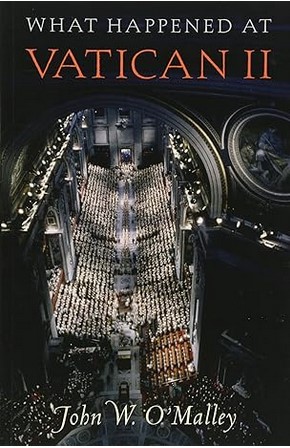
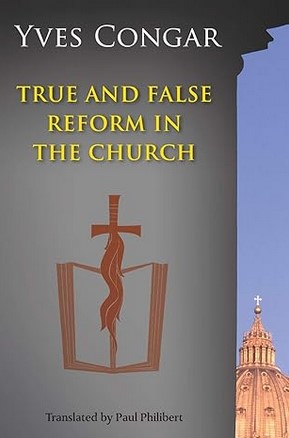
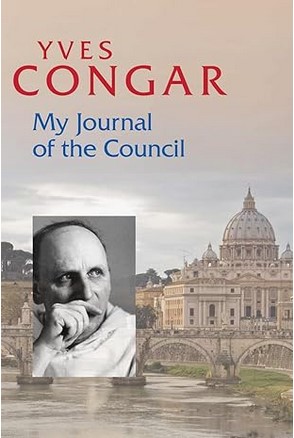
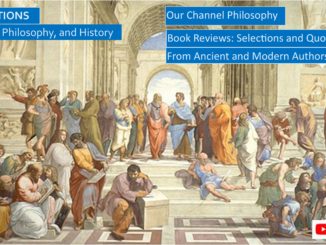
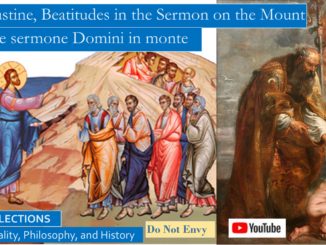
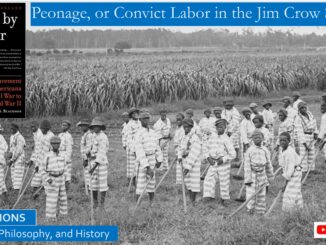
“When I was composing this, Pope Francis had revoked for rebellious communities the permission to celebrate the Latin Mass, because this practice, which should have brought people closer to God, was instead causing disunity, separating parishioners from the Church, teaching that the regular mass was not valid , and some were attacking the validity of the Vatican II decrees.”
Which *diocesean approved* communities/parishes were doing this? Francis’ decree was directed at them so please name which parishes, list them here.
Then demonstrate that there were enough of these parishes or communities to cause chaos and trouble in their diocese.
It’s up to you guys to prove this. Let’s see it. Give us a list and demonstrate they were causing so much harm.
Pope Francis, IMHO, really should not list offending or approved parishes, as this may cause more harm than good. FYI, my sister YouTube channel has far more commenting going on, this is the script for the YouTube video. https://www.youtube.com/@ReflectionsMPH